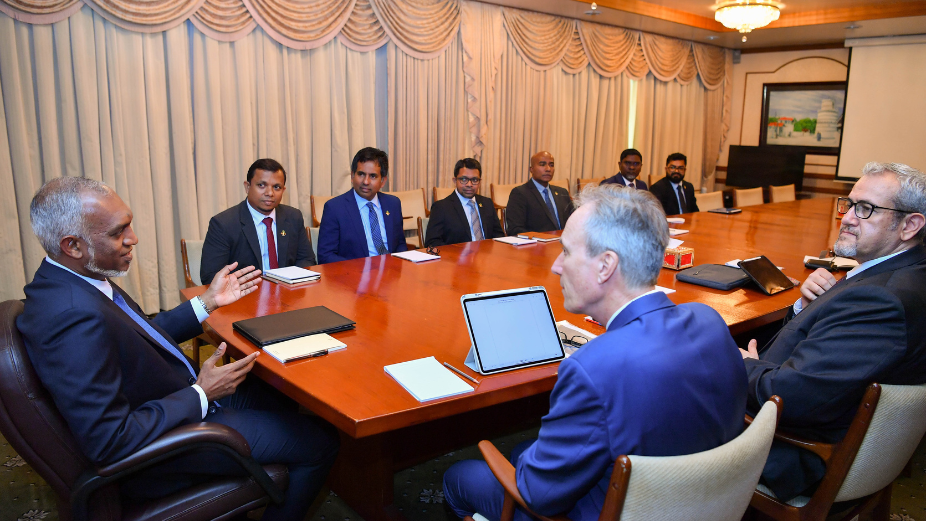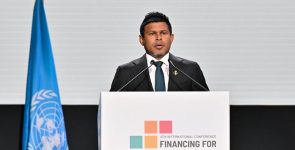Martin Raiser, the World Bank Vice President for South Asia, concluded a four-day visit to the Maldives, reinforcing the World Bank’s commitment to supporting the nation’s development objectives. This commitment builds on a partnership spanning over four decades, during which significant progress has been made in sectors such as health, education, housing, and public services.
During his visit, Raiser engaged in discussions with key Maldivian officials, including President Dr Mohamed Muizzu, Finance Minister Dr Mohamed Shafeeq, Minister of Climate Change, Environment and Energy Thoriq Ibrahim, and Minister of Economic Development and Trade Mohamed Saeed, among others. These meetings focused on the Maldives’ development achievements and the challenges ahead, particularly in the context of fiscal sustainability and environmental resilience.
Raiser highlighted the critical need for fiscal reforms to address the risks posed by increased spending, limited foreign exchange reserves, high debt levels, and the impact of elevated global interest rates. He stressed the importance of taking urgent measures to contain non-essential spending, enhance revenue generation, and manage debt more effectively. These steps are deemed essential for creating the fiscal space necessary for continued investment in the Maldives’ human capital, natural resources, and infrastructure, which are crucial for sustainable growth and development.
The launch of the first-ever Human Capital Review for the Maldives was a highlight of Raiser’s visit, revealing that while the country’s human capital index surpasses that of its regional, small-island, and income comparators, challenges such as regional and gender inequities remain. Addressing these inequities requires a shift from increasing overall spending to prioritizing and targeting expenditures based on need, alongside efforts to enhance the quality of services, especially in less developed islands.
Raiser also focused on the existential threat posed by climate change to the Maldives, emphasizing the interconnectedness of economic and climate crises. He advocated for collaborative efforts with the government, development partners, and the private sector to identify investment opportunities that yield economic, social, and environmental benefits.
The World Bank’s ongoing engagement in the Maldives includes a portfolio of 10 projects financed by the International Development Association (IDA), a regional project, and an IDA guarantee operation, totalling a net commitment of USD 217 million. These projects span various sectors, including renewable energy, competitiveness and growth, youth resilience and employability, digital development, urban development, solid waste management, COVID-19 response, fisheries, labour, health, education, and social protection. Additionally, the World Bank provides analytical support across a range of areas, including macro-fiscal monitoring, financial sector analysis, social protection, and poverty reduction.



















